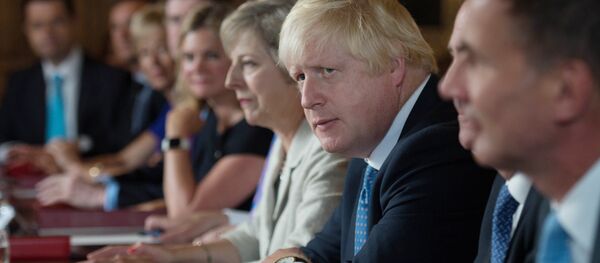Kristian Rouz — The UK economy posted a robust yearly expansion in the 12 months up to this past July despite Brexit-related uncertainly and alarmist sentiments among the Remain camp. UK wages rose at their quickest pace in roughly three years, while the jobless rate dropped to a 40-year low amid the ongoing expansion in the manufacturing sector and export-oriented industries.
According to a report from the Office for National Statistics (ONS), the British economy rose 0.6 percent in the three months to July compared to 0.4 percent over the previous period. Officials said a pickup in consumer activity and gains in the construction sector contributed to the expansion.
READ MORE: Former Brexit Secretary David Davis Doubts Chequers Plan Will Fly — Reports
Additionally, wages excluding bonuses rose 2.9 percent, outpacing the previously forecasted 2.4 percent appreciation. Meanwhile, salaries with bonuses rose just 2.6 percent — while slightly lower, this figure nonetheless exceeded earlier predictions.
"These are great figures and suggest there is still life in the UK economy despite all the negative political headlines and the pressures faced by the household sector," James Knightley of the Canary Wharf branch of the Dutch bank ING said.
The ONS also said service sector output expanded 0.3 percent between May and July, construction grew 0.5 percent while manufacturing output ticked up 0.1 percent. Officials said this ongoing across-the-board expansion supports the Bank of England's (BoE) plans to continue its normalization of monetary conditions.
READ MORE: 'I'm Afraid the Party Will Chuck Her': UK PM May Face Coup Within Days — Reports
The BoE could potentially hike its base interest rates from the current 0.75 percent to 1.00 percent by the yearend.
"Despite all the doom and gloom surrounding the economy, the toxic political backdrop and Brexit uncertainty, Britain is supposedly booming, based on July data," Knightley stressed.
The ONS also observed a solid improvement in the UK's foreign trade balance. The goods deficit greatly narrowed over the reporting period, falling to its five-month low of £10.0 bln. The total UK trade deficit decreased to £3.4 bln from £4.7 bln. Non-inflation adjusted deficit dropped £2 bln — to £2.5 bln, the ONS said.
This happened due to an increase in the exports of British services and goods amid favorable currency rates and a receptive international environment.
"Remarkably, this is the fourth best monthly trade balance figure in the past 20 years with the real encouragement being that it was caused by a jump in exports rather than purely slower imports," ING's Knightley said.
ONS officials pointed out the labor market is ‘robust', saying job openings hit their record-highest — and mirroring the US job market trends — with a total of 833,000 vacancies currently open across the UK.
The ONS' report stirred a celebration among hardline Tories and avid Brexiteers, who reiterated their message that gloomy economic projections, which have been dubbed 'Project Fear', have failed to become reality.
However, some experts are still not convinced the British economy will keep the momentum going into the autumn.
"The long hot summer could give way to a stormy autumn, as Brexit-related uncertainty leads businesses to defer major investment decisions and subdued real wage growth weighs on consumer spending," John Hawksworth of PwC said.
READ MORE: Ex-UK Foreign Secretary Warns MPs Against Blocking PM May's Chequers Brexit Deal
READ MORE: London Rejects Plans for EU Staff at UK Ports Amid Hard Border Brexit Fears
While Brexit is still several months away and due in March 2019, macroeconomic data suggest the UK has weathered the storm of political risks and investment shocks of the past two years since the referendum. In this light, a Brexit recession or excessive market volatility in case of a 'no-deal' Brexit is now deemed highly unlikely.


